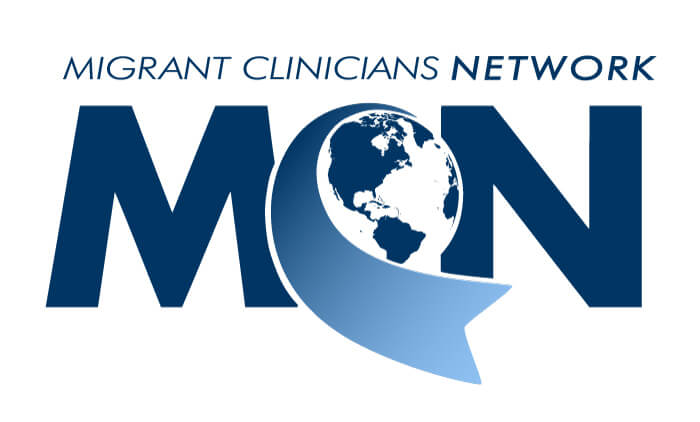Organizations Work Alongside Communities in the Face of Climate Change

FOR IMMEDIATE RELEASE
Release Date: Wednesday, June 5, 2024
Organizations Work Alongside Communities in the Face of Climate Change
Migrant Clinicians Network Launches Three-Year Collaboration to Increase Climate Resilience and Health for Caribbean Agricultural Communities
San Juan, PR – Wednesday, June 5, 2024 - Migrant Clinicians Network (MCN), with partners Mentes Puertorriqueñas en Acción (MPA) and the United States Department of Agriculture (USDA) Caribbean Climate Hub (CCH), have launched a three-year collaborative project with community health centers to bolster Caribbean agricultural communities’ resilience and increase health and well-being in the face of climate threats. As the region enters another predicted above-average hurricane season, the collaboration will empower communities to identify and consider the needs of populations like agricultural workers who have a higher risk of experiencing climate-related events and have lower access to health care.
"Communities across the Caribbean have already been deeply impacted by the climate crisis,” noted Marysel Pagán Santana, DrPH, Director of Environmental and Occupational Health at MCN Caribbean Region, also the principal investigator of this project. “Our unique susceptibility to climate change -- from experiencing a greater frequency of hurricanes, to alternating floods and droughts – is difficult to respond to and prepare for, in communities like rural agricultural towns, that have many barriers to care and have unique health risks that are worsened by climate. This important collaboration will help communities across Puerto Rico, the Virgin Islands, and beyond, to adapt to climate change and even improve health outcomes.”
MCN, a national nonprofit organization with an office in Puerto Rico; MPA, a Puerto Rico-focused nonprofit; and the USDA CCH, one of 10 Regional Centers linking various USDA agencies, will work with community health centers in Puerto Rico and the US Virgin Islands to disseminate information, resources, and services related to climate adaptation and identify potential climate-related hazards affecting the livelihoods of farmers and farmworkers.
“The curriculum we will build with input from communities, clinicians, and scientists will be the focus of our first year,” explained Carolina Mejías, Executive Director of MPA. “We will then provide support to the outreach personnel of community health centers to do outreach and training in their own communities, a train-the-trainers approach. Community-based and -led approaches are the most effective, tailored to the needs of the individual community and ensuring that trusted messengers are providing the trainings.”
These centers will impact communities with the resources provided, aiming to increase access to knowledge and resources about adopting practices to mitigate and adapt to climate change. In its current phase, the two piloting health centers in Puerto Rico and St. Croix, along with a Scientific Advisory Committee, will provide feedback and report needs as they implement the project to adapt resources and curriculum. The project will be expanded to five community health centers in Puerto Rico and one CHC in St. Thomas by 2025.
In islands like Puerto Rico and the US Virgin Islands, where there is a high dependence on imported goods, local food systems play an important role in providing culturally appropriate and nutritious food in the aftermath of an emergency. Hence, local producers are key agents in safeguarding local food security.
“Farmers and farmworkers are at the forefront of climate impacts; their health and wellbeing must be considered when discussing climate adaptation,” said Luis Alexis Rodríguez-Cruz, PhD, Social Scientist and Co-Principal Investigator on the project. “One of the aims of this project is to support their adaptive capacity through the network of community health centers that already serve agricultural communities.”
The project is supported by funds from USDA’s National Institute of Food and Agriculture.
“This important project endeavors to support agricultural communities to learn about and incorporate sustainable practices that will not just protect their communities during climate-fueled crises, but will build health and well-being for the long term and secure Caribbean food sources,” added Dr. Pagán Santana. “The climate crisis is here – and we need to respond quickly and aggressively.”
For media inquiries, please contact:
Claire Hutkins Seda
Migrant Clinicians Network
512-579-4533
For more information about Migrant Clinicians Network, visit www.migrantclinician.org.
About Migrant Clinicians Network: A national nonprofit focused on the health needs of migrants, immigrants, asylum seekers, and other underserved communities and the clinicians who serve them. Their mission is to create practical solutions at the intersection of vulnerability, migration, and health, in order to build health justice and equity. We are a force for health justice. Learn more about Migrant Clinicians Network at: www.migrantclinician.org.
About USDA Caribbean Climate Hub: One of ten Regional Hubs connected in a network dedicated to delivering science-based knowledge and practical information to farmers, ranchers, and forest landowners that will help them to adapt to climate change and weather variability by coordinating with local and regional partners in federal and state agencies, universities, and the public. Their mission is to help society sustain and improve the viability of forestry and agricultural production, the availability and quality of soil and water resources, the viability and quality of rural lifestyles, and food security considering climate variability and change. Learn more about USDA Caribbean Climate Hub at: https://www.climatehubs.usda.gov/hubs/caribbean
About Mentes Puertorriqueñas en Acción: A non-profit organization that is committed to building a community of diverse young leaders who want to change Puerto Rico through spaces for training, civic action and positioning that will generate effective projects for the transformation of Puerto Rico. Its mission is to assemble a community of young people who make Puerto Rico their life project. Their vision is to create successive generations of young people committed to creating a Puerto Rico that is supportive, participatory, and just. Learn more about Mentes Puertorriqueñas en Acción at: https://www.mentesenaccion.org/